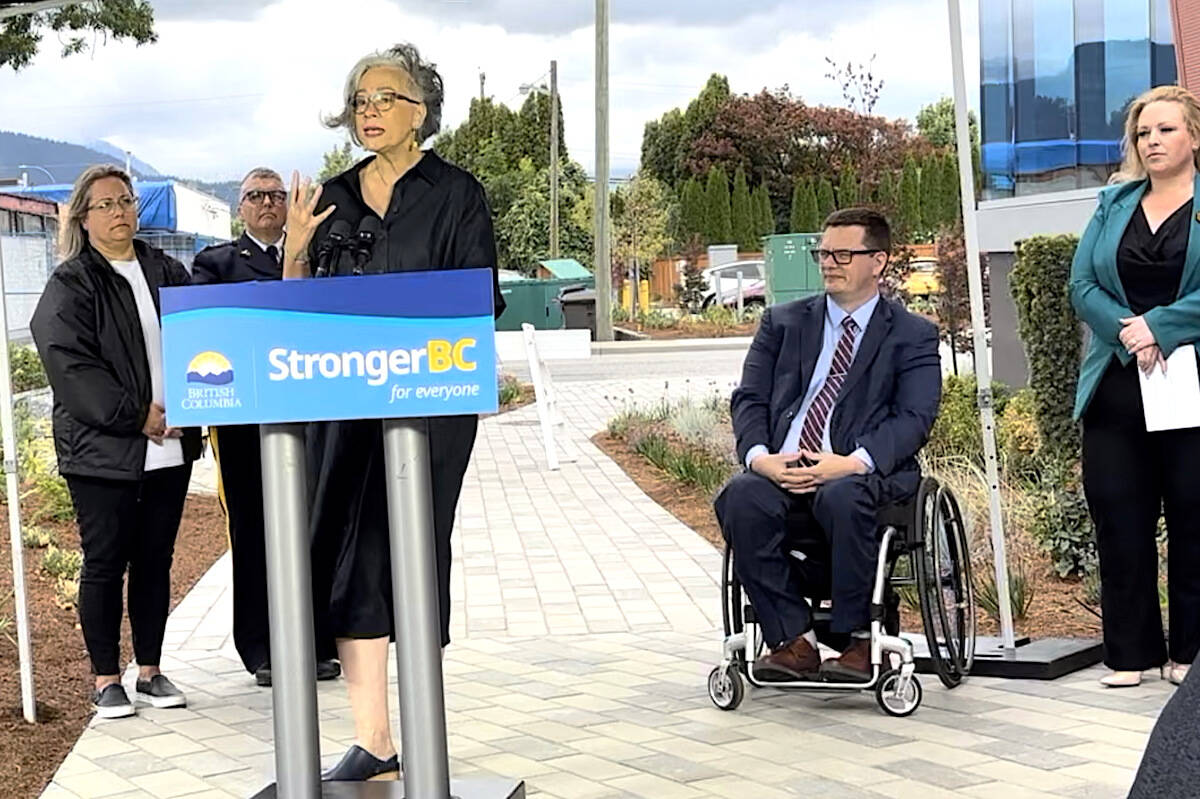The provincial government is almost doubling the number of specialized teams to help care for those facing mental health or substance use crises, while avoiding a police-only approach.
Mobile Integrated Crisis Response teams pair police officers with mental health-care professionals, either nurses or social workers, to respond to mental-health calls that police receive. Teams also receive support through nurses
A dozen such teams currently operate across B.C. Mental Health and Addictions Minister Jennifer Whiteside said Monday (July 17) the program will expand to nine additional communities, backed by $3 million in provincial funding.
“These teams are an important part of our government’s work to increase supports for people with complex mental health and addictions challenges,” Whiteside said in announcing the expansion with the Public Safety Minister and Solicitor General Mike Farnworth in Chilliwack.
That community, along with Abbotsford, Port Coquitlam/Coquitlam, Burnaby, Chilliwack, Penticton, Vernon, Squamish, Prince Rupert and the Westshore (of Greater Victoria), will receive one of the nine new teams.
MICR teams currently operate in Kamloops, Kelowna, Prince George, Fort St. John, Richmond, Surrey, Vancouver, North Shore, Nanaimo and Victoria.
Whiteside said the new teams will spring into action in “short order” but could not give an exact timeline and acknowledged that the new teams are not yet complete on the mental health side.
“I would expect that health authorities would be proceeding to post positions again very soon to get that recruitment process started,” she said. “I’m confident that municipalities are already working with their local policing agencies to have the plans in place very soon for the policing part.”
When asked why and how the province chose the new communities, Whiteside said her ministry is working with closely with municipalities and health authorities to determine priority areas and areas with resources ready to go.
“So we are looking at the number of mental health calls that police are responding to, we look at the experience of our partner service providers with respect to mental health issues and this the first part of an investment coming out of our Safer Communities Fund announced in November,” she said.
Farnworth said the expansion of the program will free up policing resources to focus on crime while providing individuals dealing with mental health and addiction issues with compassionate care.
“Currently, police have been the default first responders for people in the event of a mental health crisis and we know that in most cases (police-only) involvement is not the most appropriate response,” he said. “Or importantly, having police-only involvement can help contribute to the stigmatization of mental health and even deter people in crisis from seeking help.”
Farnworth added that many police departments and health authorities currently running these teams say that they make a difference, but demand currently exceeds supply.
“It’s clear that there is a need for a better and more timely access to the health care system, not the criminal justice system,” he said.
RCMP assistant commissioner Maureen Levy, who serves as Lower Mainland District Commander, welcomed the program’s expansion, as did Chilliwack Mayor Ken Popove. “We have been advocating this technical program for a few years now,” he said. “It falls in line with our Community Action Plan on the crime side of the house and the mental health side of the house. It’s welcome news for our community.”
@wolfgangdepner
wolfgang.depner@blackpress.ca
Like us on Facebook and follow us on Twitter.

